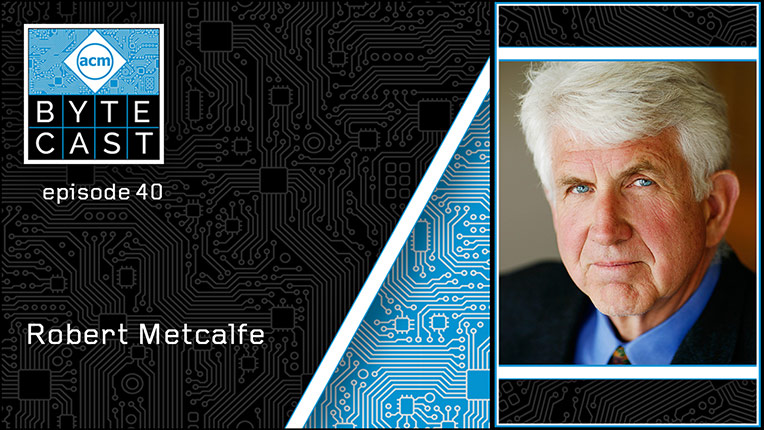Ep40 Robert Metcalfe
In this episode of ACM ByteCast, our special guest host Scott Hanselman (of The Hanselminutes Podcast) welcomes 2022 ACM A.M. Turing Award Laureate Robert Metcalfe, Emeritus Professor of Electrical and Computer Engineering at The University of Texas at Austin and Research Affiliate in Computational Engineering at the Massachusetts Institute of Technology (MIT) Computer Science & Artificial Intelligence Laboratory (CSAIL). Metcalfe received his Turing Award for the invention, standardization, and commercialization of Ethernet, the foundational technology of the Internet, which supports more than 5 billion users and enables much of modern life. His other honors include the National Medal of Technology, IEEE Medal of Honor, Marconi Prize, Japan Computer & Communications Prize, ACM Grace Murray Hopper Award, and IEEE Alexander Graham Bell Medal. He is a Fellow of the US National Academy of Engineering, the American Academy of Arts and Sciences, and the National Inventors, Consumer Electronics, and Internet Halls of Fame.
In a wide-ranging interview, Bob reflects on his “Ethernet paper” with David Boggs from 1976, and how the interoperability and backward compatibility baked into the Ethernet allows the technology to hold up today, in the age of Netflix and Zoom. Bob also describes his most recent project, modeling geothermal wells as a computational engineer at MIT, with the aim of harnessing geothermal energy as an alternative to fossil fuels. Along the way, they touch on “stretch goals,” GPUs, and how far down “the stack” one needs to go to fully appreciate and understand a piece of technology.
Link: "Ethernet: Distributed Packet Switching for Local Computer Networks" (Metcalfe and Boggs' classic 1976 article in Communications of the ACM)
Download the show notes.
Download the transcript.
